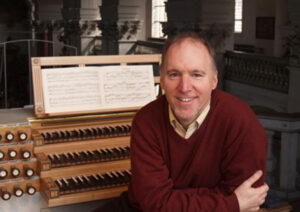It all began with a concert. Classical guitarist, Julian Bream, was playing at the Kennedy Center. The only thing on the massive concert hall stage was one chair, one guitar, and one player. The house was full to capacity, some 4000 people listening so intently that I wondered if I should hold my breath so as not to interfere with other people’s obvious state of bliss. The audible sounds of the audiences’ collective, joyful exhale accompanied the end of each selection.
I was not yet in college but already knew I wanted to devote my life to making music, but more to the point, to create the affect that I had witnessed in that concert – an affect I would play host to, thousands of times again, in other concerts: transformation.
How do you transform conflict into empathy? I have spent a lifetime searching for the alchemical secret. And then I found it.
It turns out that live music, in the right context, can transform a common state (let’s call it conflict) into joy (let’s call it empathy). Why? Neuroscience tells us the answer with potentially global significance.
The world is full of conversations about how music makes us feel. I don’t want to negate those, but I do think that they miss the point. Music works not because of what it makes us feel, but because of what it makes us become. It brings us to an awareness of joy. Joy is an internal state of peace based on who we are innately.
What if the only thing keeping the human race from finding common ground, with those we disagree with, is the mutual experience of beauty? What if the tool for being able to recognize our common humanity is as simple as synchronizing our heartbeats and our brain waves while experiencing live music?
And now, imagine if the leaders of the Nations spent 12 – 15 minutes, while in negotiation, immersed in the transformative experience of witnessing and hearing a few musicians, right in their negotiation space? What insights could be gained? The idea is not as far-fetched as one might think.
As President Obama stated in an interview with Lin-Manuel Miranda, creator of Hamilton, “Everyone walks into the [negotiation] room with constraints placed on them by their constituency… The only way anything ever gets accomplished is by seeing the world through the eyes of the person across the table.”
The Resonance Project (TRP) is the catalyst needed to make this possible.
About the Founder
 Organist, Jonathan Dimmock is recognized internationally as a concert artist with a probing intellect, warm stage presence, and love of communicating. His musicianship is enjoyed by at least 100,000 people each year through his constant performing and recording. An innovative programmer, he designs and performs weekly programs for the Legion of Honor Museum illustrating the correlation between art and music. He is also the Organist for the San Francisco Symphony and is in constant demand as an organ accompanist. Touring several times each year, he is one of the few organists in the world to perform on six continents – venues from St. Peter’s in Rome to Notre Dame in Paris, and from Carnegie Hall to the Cultural Center in Hong Kong.
Organist, Jonathan Dimmock is recognized internationally as a concert artist with a probing intellect, warm stage presence, and love of communicating. His musicianship is enjoyed by at least 100,000 people each year through his constant performing and recording. An innovative programmer, he designs and performs weekly programs for the Legion of Honor Museum illustrating the correlation between art and music. He is also the Organist for the San Francisco Symphony and is in constant demand as an organ accompanist. Touring several times each year, he is one of the few organists in the world to perform on six continents – venues from St. Peter’s in Rome to Notre Dame in Paris, and from Carnegie Hall to the Cultural Center in Hong Kong.
A graduate of Oberlin and Yale, he had the unique privilege of being the only American to serve as Organ Scholar of Westminster Abbey after which he continued his career in the United States serving three cathedrals: St. John the Divine (New York City), St. Mark’s (Minneapolis), and Grace (San Francisco). He is especially renowned for his interpretations of the music of Bach and Messiaen.
Jonathan has recorded more than fifty CDs including a Grammy Award-winning CD of Mahler Symphony 8 with the San Francisco Symphony. In addition to hundreds of listings on YouTube, iTunes, Spotify, and other online music sites, he has been interviewed and featured on numerous radio and television stations including National Public Radio, Radio France, BBC3, ABC (Australia), MTV2 (Budapest), BCC (Barbados), and SABC (South Africa).
Jonathan’s creativity is that of a visionary. His numerous blog writings, his passion for communicating, and his personal focus have been the impetus for his founding of five nonprofit organizations, including the highly acclaimed American Bach Soloists (ABS), Artists’ Vocal Ensemble (AVE), and, most recently, The Resonance Project – using live music to transform conflict and find common ground. This project has led him to interview some of the greatest musicians in the world, all of whom share his excitement about the interface between music and neuroscience. The project has garnered attention from the United Nations, the U.S. Dept. of State, and President Obama. Jonathan is deeply committed to sharing the transformative power of music with the whole world.
